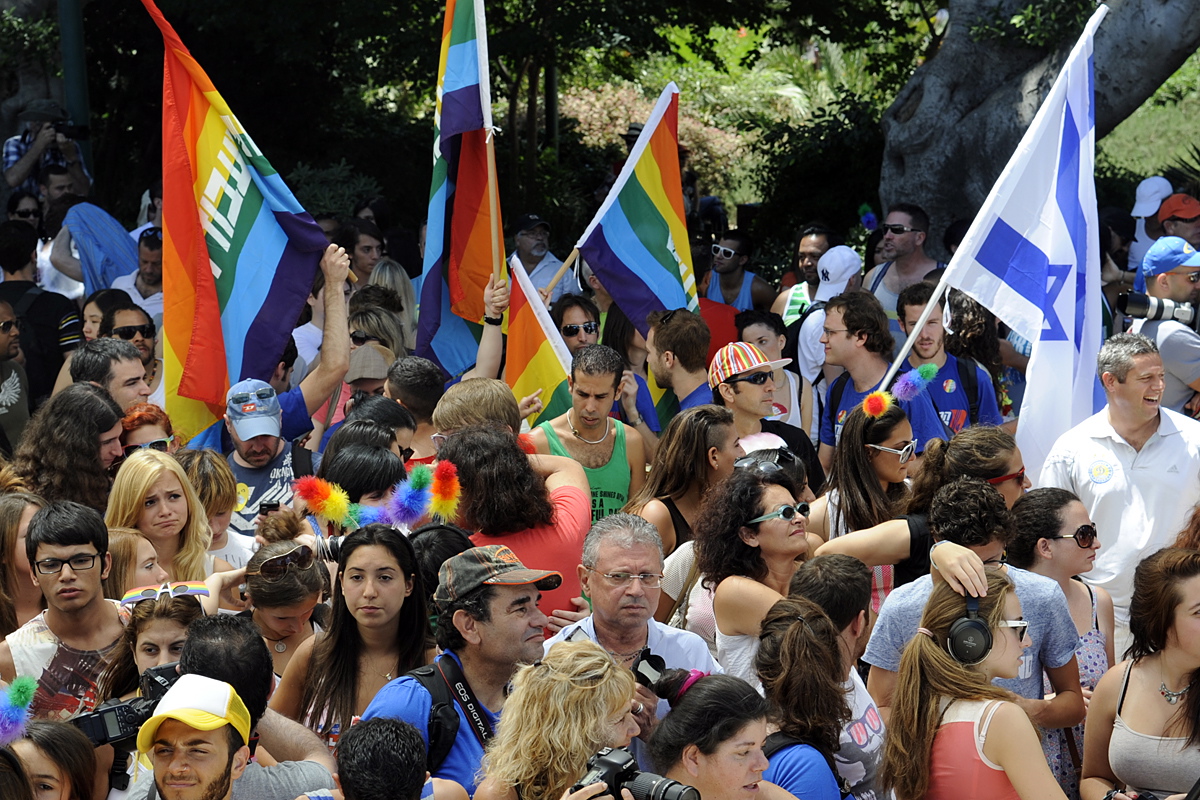
The idea of “pinkwashing” is not new. The concept is defined as such: the Israeli government, having to deal with the violation of human rights in the Occupied Territories, uses its record on LGBTQ inclusion (for example, its military has never had a Don’t Ask; Don’t Tell policy, unlike some countries we know) to obscure the lack of rights given to Palestinians in the Occupied Territories.
In reality, however, the Israeli LGBTQ community faces many of the same challenges that LGBTQ people all over the world face: they are unable to marry legally due to the much-discussed stronghold that the Israeli Orthodox rabbinate holds over the country’s marriage laws, but are eligible for the Israeli equivalent of our civil union. The community faces violence due to homophobia and transphobia that is just as prevalent as in Israel as it is here in America. LGBTQ Israeli teens feel uncomfortable talking about issues surrounding sexuality in their high schools, and Israeli schools, like American schools, are struggling with making their learning environments safe and nurturing for their queer students.
That is not to say, however, that the Israeli LGBTQ community does not have its fair share of wins: just a month ago, the Israel Ministry of Health reduced the minimum age for sex reassignment surgery for transgender people in Israel from 21 to 18, and greatly subsidizes the surgery and hormone therapy needed to transition. (In America, to our credit, President Obama announced only fifteen days later that Medicare would cover the same surgery for its patients.) In 2011, Tel Aviv was ruled the world’s “Best Gay City.” And, of course, it never had Don’t Ask; Don’t Tell.
The problem with pinkwashing is not that the Israeli government is doing it; it is that we, in America, are. When faced with the accusation of violation of human rights in Israel, one of the first answers, after explaining that Israel is the only country in the region that allows all of its citizens to vote, is to proclaim Israel’s seemingly impeccable records on LGBTQ rights. The problem is not only that we then erase the work that has been done to get to the point that it has, but that we undermine the scope of the work that still needs to be done.
The pinkwashing phenomenon is part of a much larger problem that we have with Israel advocacy in America: our perception that Israel is always in the right, and that it is impeccable in its record on human rights. The issue is not only that we are lying, we are undermining our own efforts at advocating for the State of Israel. Touting Israel’s record on LGBTQ rights as a badge of honor does erase the need to fight for the work that needs to be done, be it for the LGBTQ community, racial minorities, women facing increasing income inequality, or the Palestinians living under the occupation. In erasing these struggles, we raise Israel to standards no country — not even the most accepting or the most progressive — reaches. We also fail at perhaps the most basic need: to examine the world around us in a nuanced and complex way.
Our discussions about Israel are all too often one-sided, and this is to the detriment of Israeli society. Our problem is not Israel’s detractors pointing out the state’s violations of human rights; it is the fact that we, in our efforts to valiantly defend the state that is (supposedly) the home for all Jews, everywhere, are forgetting those problems that must be addressed. Our desire to support the State of Israel should lead us to not only defend Israel against said detractors, but also to ensuring that when we talk about Israel’s (supposedly) impeccable human rights record, we are right.
June marks LGBTQ Pride Month around the world, and Tel Aviv just celebrated pride this past week. Pride is more than just parties and a large parade. Pride means taking a step back and realizing that there is still work to be done: there are still people who cannot yet march in that parade. Just because Tel Aviv hosted an estimated 30,000 tourists for pride week does not mean that members of the queer community do not live in constant fear of being physically assaulted and humiliated because of their gender presentation or sexual orientation.
The test that we American advocates for Israel must face is being proud despite the drawbacks. We must be able to take the bad with the good, but not accept it. We cannot continue lying. It is only through imagining Israel as a complex society, complete with its own societal problems, that we can become proper advocates. We cannot be afraid to criticize Israel. We must erase the image of Israel as an idyllic society, and the first step we can take is to stop pinkwashing. Israel has problems — as does every other complex society — and we must make sure that those are not erased as we advocate on its behalf. That, ultimately, is where our pride lies.
Amram Altzman is a student at List College.

